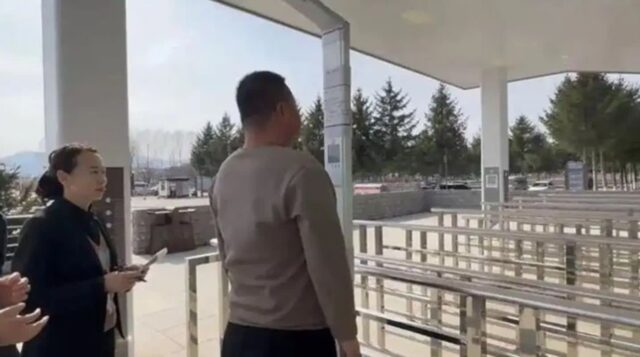Xi Jinping Urges an End to Interference While EU Presses for Trade Balance Solutions
Eugene Park Views
Contrasting views at China-EU Summit
Xi unhappy with Western tech sanctions
EU notes imbalances and differences
Stresses the need to reduce trade deficit
Ukraine conflict disagreements persist
![시진핑 '모든 간섭 없애야'…EU '무역 불균형 해결해야' [뒷북 글로벌]](https://contents-cdn.viewus.co.kr/image/2023/12/CP-2023-0094/image-8ebbaae9-f42e-4b44-9bed-c63c1d67f7c0.jpeg)
China and the European Union (EU) held their first summit in four years but failed to achieve significant results. Both sides emphasized the need for trust and cooperation for mutual benefit but could not narrow their differences at the meeting. Diverging priorities led to the failure, as the EU grapples with internal divisions over Ukraine and China expresses intense dissatisfaction with strengthening Western export controls. The sharp conflicts in their trade relations have prevented both sides from making concessions.
Xi Jinping’s Emphasis on Eliminating Interference
Von der Leyen’s Concerns Over Imbalances
Chinese President Xi Jinping met with Charles Michel, Permanent Chairman of the EU Summit, and Ursula von der Leyen, President of the European Commission, who visited Beijing, China on the 7th. Xi emphasized, “China and the EU should continuously strengthen political trust and gather strategic consensus as cooperation partners.” Chairman Michel stated the EU’s commitment to fostering a stable and mutually beneficial relationship with China, emphasizing the desire for cooperation grounded in transparency, predictability, and reciprocity.
This is the first time that the current head of the EU executive has visited China for face-to-face talks.
However, the meeting only highlighted the differences in priorities and positions between the two sides. Reporting from Chinese state media, including CCTV, indicates that President Xi emphasized the importance of eliminating interference in bilateral relations. He articulated that different political systems should not be a basis for rivalry, arguing that competition shouldn’t hinder cooperation and that differences should not lead to opposition. This statement refers to the EU’s participation in export controls against China, aligned with U.S. policies. On the other side, President von der Leyen acknowledged China as the EU’s most significant trading partner but also pointed out existing imbalances and differences that need addressing. Following the meeting, she expressed satisfaction over an agreement with President Xi that trade between the two sides must be balanced, although she did not specify any particular agreement.
The Ongoing Trade Dispute and Expectations
The two sides had been at odds even before the start of the summit. The EU emphasized the need to resolve the trade deficit with China just two days before the meeting, saying, “We will not tolerate long-term trade imbalances.” In response, China immediately countered, “It is not logical for the EU to want to increase exports to China while imposing strict export controls on advanced technology to China.” In addition, with the EU Summit scheduled for the 14th and 15th (local time) and Hungary putting brakes on the agenda for Ukraine’s EU accession negotiations, the EU executive, which was in a hurry, also shortened the schedule for the visit to China from two days to one day.
The failure to narrow the differences in the trade conflict, which was expected to be a key meeting issue, was seen as a foregone conclusion given that both sides were taking a hard line. According to the Financial Times (FT), EU officials had lowered expectations before the meeting, saying, “There will be no joint statement or major outcomes.” The EU, which recorded a trade deficit of 400 billion euros (approximately $570 trillion) with China last year, claims that the Chinese government’s massive subsidies are damaging fair trade.
In response, the EU announced in October that it would begin investigating subsidies for Chinese electric cars exported to the region and impose countervailing duties depending on the results. China criticized this as a ‘blatant protectionist action’ and announced export controls on graphite, a critical raw material for electric car batteries, in the same month. Alicia Garcia Herrero, Senior Researcher for Asia-Pacific at Natixis, said, “China, which needs a large trade surplus to offset capital outflows, is unlikely to change its foreign policy,” and “The EU will not back down from the same issue.”
Disagreements Over Russia and Ukraine
The two sides also failed to narrow their differences on international issues, such as the war in Russia and Ukraine. The EU urged China to cooperate with Russia’s export controls and exert influence to end the war. China has supported Russia by purchasing Russian oil subject to Western sanctions and supplying parts needed for military equipment. The New York Times (NYT) reported, “Despite the EU’s opposition, China, which needs a long-term partner to counter the U.S., is unlikely to give up Russia.” Meanwhile, according to the Chinese Ministry of Foreign Affairs, President Xi plans to visit Vietnam on the 12th and 13th to discuss ways to upgrade relations after the summit with the EU.
By. Hye Jin Jeong










Most Commented